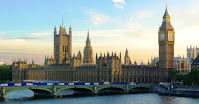A number of interesting articles have been published recently about the Dissolution and Calling of Parliament Bill and the Judicial Review and Courts Bill.
Dissolution and Calling of Parliament Bill:
This is a government bill introduced to repeal the Fixed-term Parliaments Act 2011 and to "revive" the former prerogative power to dissolve Parliament so that a Prime Minister will be able to "call" a general election at any time. It appears that the revived power will exist in law only because of the new Act. The power will not be justiciable in the courts. See the House of Commons Library briefing
Two earlier posts
on this blog considered the Bill -
Law and Lawyers: Dissolution and Calling of Parliament Bill - No.1 Background (obiterj.blogspot.com)
Law and Lawyers: Dissolution and Calling of Parliament Bill - No.2 ~ What is in the Bill (obiterj.blogspot.com)
On 28 July 2021, Professor Alison Young published an article on the Constitution blog - The Dissolution and Calling of Parliament Bill - a return to constitutional normality - where it is argued that the Bill transfers power from Parliament to the government and not to the people and that it is wrong to place the blame for the extraordinary events of 2019 on the provisions of the Fixed-term Parliaments Act.
Prof. Young says - "As well as transferring power from Parliament to the Executive, the Bill also places trust in the Monarch and not the courts to provide a check on the executive in exceptional circumstances."
It is unclear how, if at all in practice, the Monarch could refuse a requested dissolution. It is probably too much to expect that a largely ceremonial monarchy will be able to exercise any real influence over such matters.
(Professor Young is the Sir David Williams Professor of Public Law at the University of Cambridge and is a legal advisor to the House of Lords Constitution Committee).
Judicial Review and Courts Bill:
The Judicial Review provisions in this Bill have attracted the most attention - see previous post
Law and Lawyers: Judicial Review and Courts Bill ~ proposed changes to judicial review (obiterj.blogspot.com)
Nonetheless, the other provisions in the Bill are of major importance -
Law and Lawyers: Judicial Review and Courts Bill ~ Criminal Courts and Coroners (obiterj.blogspot.com)
In an article published by Politics UK (2 August 2021), Ian Dunt considers the judicial review part of the Bill and sees it as government "taking revenge" on the courts.
Silencing Dissent: New Bill targets judicial review as government takes revenge on the courts
Mr Dunt commented that - "Attacks on judicial review are not just an attack on a particular legal instrument. They are an attack on the concept of the rule of law, and in particular, the notion that the government should be restrained by it."
The government's proposals about Judicial Review may not be a topic of daily conversation but they are undoubtedly an attempt by government to protect itself against its critics. Mr Dunt is correct to say -
Further articles of interest:
A further interesting article in the Byline Times by Chris Grey also touches upon the subject of judicial review -
Here Chris Grey explored the forces unleashed by Brexit and how they reveal the weaknesses of Britain's "unwritten constitution - vulnerable in its reliance on norms and conventions to deliver representative democracy."
For a more general commentary about the current state of politics an article by Hardeep Matharu is worth reading -
Byline Times 23 July 2021. Here it is argued that Labour MP Dawn Butler's removal from the House of Commons after calling Boris Johnson a 'liar' finally exposed the structural failings at the heart of the British State.
Misleading Parliament (including "lying") should not happen and ought to be sanctioned. The
Ministerial Code requires any inaccuracy to be corrected. Using the term "liar" is unparliamentary language. Nonetheless, there is the unhappy appearance of lying not being sanctioned whilst a sanction is applied to those who call-out those who lie.
The article reflects an earlier view by Andrew Blick and Peter Hennessy that a serious problem with the UK constitution is the degree to which the good governance of the
United Kingdom (UK) has relied on the self restraint of those who carry it out. In the UK, we have trusted politicians
to behave themselves. We have long assumed
that those who rise to high office will be ‘good
chaps’, knowing what the unwritten rules are
and wanting to adhere to them.
4 August 2021






No comments:
Post a Comment